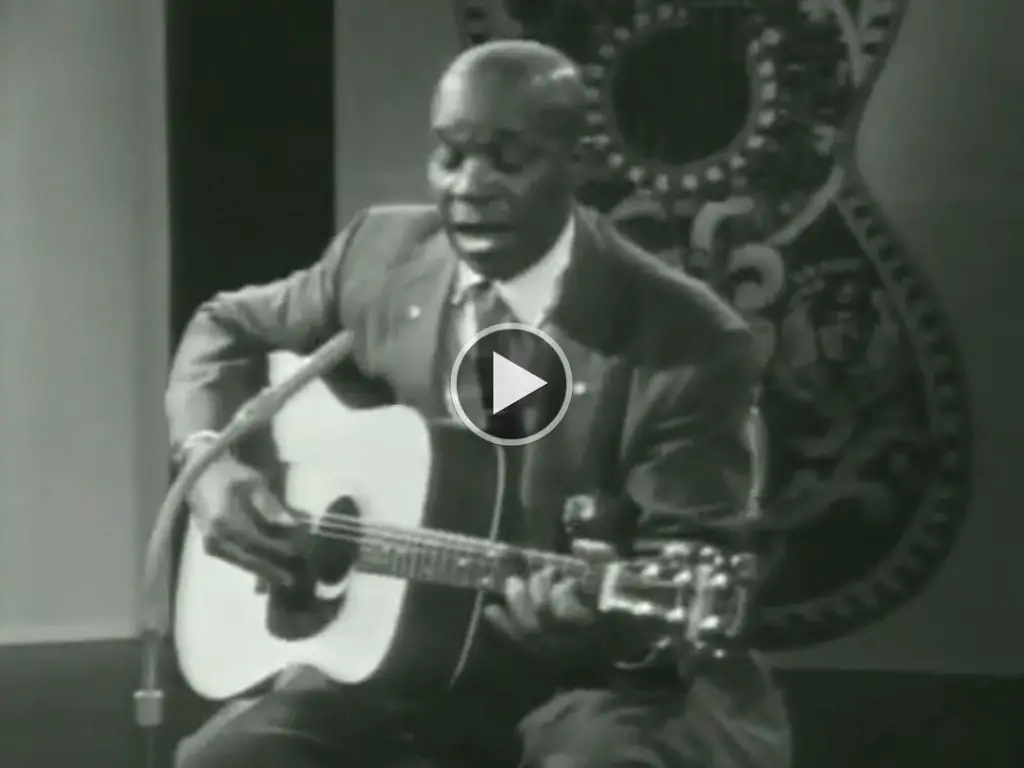
Skip James and the Enduring Legacy of “Hard Time Killing Floor Blues”
Skip James, born Nehemiah Curtis James in 1902 in Bentonia, Mississippi, remains one of the most enigmatic and influential figures in the history of the blues. A pioneer of the Delta Blues, James’ haunting voice, intricate guitar work, and somber piano compositions have left an indelible mark on the genre. One song in particular, “Hard Time Killing Floor Blues,” encapsulates his genius and underscores his influence on generations of musicians.
The Origins of Skip James and the Bentonia Blues Style
James’ early life was marked by hardship, as he grew up in the segregated South during a time of economic struggle and racial injustice. These experiences profoundly influenced his music, which often explored themes of sorrow, despair, and spiritual longing.
Skip James is often associated with the Bentonia School of blues, a style characterized by unconventional tunings and intricate fingerpicking. He favored a haunting, minor-key tonality that set him apart from many of his contemporaries. His use of the “cross-note” tuning (open D minor) gave his music a haunting, ethereal quality, which became his signature sound.
“Hard Time Killing Floor Blues”: A Song of Despair
Recorded in 1931 during the Great Depression, “Hard Time Killing Floor Blues” reflects the deep economic and emotional struggles of the era. The term “killing floor” metaphorically references the slaughterhouse floor, a grim symbol of despair, exploitation, and survival. James’ lyrics and delivery convey an aching vulnerability:
“Hard times here and everywhere you go,
Times are harder than ever been before.”
His high, mournful falsetto, combined with the intricate picking of his guitar, creates a stark and evocative atmosphere. The song captures the universal human experience of suffering, resonating deeply with listeners across generations.
Rediscovery During the Folk Revival
Like many blues musicians of his era, Skip James faded into obscurity after his initial recordings. However, the 1960s folk and blues revival brought his music to a new audience. He was rediscovered in 1964 by blues enthusiasts John Fahey, Bill Barth, and Henry Vestine, who found him in a hospital in Tunica, Mississippi.
James’ re-emergence came at a time when America was grappling with civil rights issues and a growing countercultural movement. His music, particularly “Hard Time Killing Floor Blues,” struck a chord with listeners who found solace and truth in his stark depictions of hardship.
Influence on the Blues and Beyond
“Hard Time Killing Floor Blues” has inspired countless musicians in the blues world and beyond. James’ unique style influenced artists such as Robert Johnson, who incorporated James’ intricate guitar work and emotional depth into his own compositions. Johnson’s fame as the quintessential Delta Bluesman further spread James’ musical legacy.
In later decades, James’ music found its way into rock and folk. Artists like Eric Clapton, Bonnie Raitt, and Cream paid homage to his work, directly citing his influence or covering his songs. The minimalist and emotional power of “Hard Time Killing Floor Blues” also appealed to contemporary audiences, finding a place in film soundtracks such as the Coen Brothers’ “O Brother, Where Art Thou?”
The Timelessness of “Hard Time Killing Floor Blues”
What makes “Hard Time Killing Floor Blues” so timeless is its ability to capture the fragility of the human condition. Skip James’ music transcends the specific struggles of the Great Depression, speaking to universal experiences of loss, pain, and resilience. His haunting falsetto and masterful guitar playing remain a touchstone for blues enthusiasts and musicians, serving as a reminder of the power of music to articulate the deepest emotions.
Skip James may have lived much of his life in obscurity, but his work—especially “Hard Time Killing Floor Blues”—continues to inspire and influence. His legacy is a testament to the enduring power of the blues to connect us to our shared humanity, no matter how hard the times.
Video
Thank You
We appreciate your time and dedication to reading our article. For more of the finest blues guitar music, make sure to follow our Facebook page, “I Love Blues Guitar”. We share exceptional selections every day. Thank you once again for your continued support and readership.


Facebook Comments